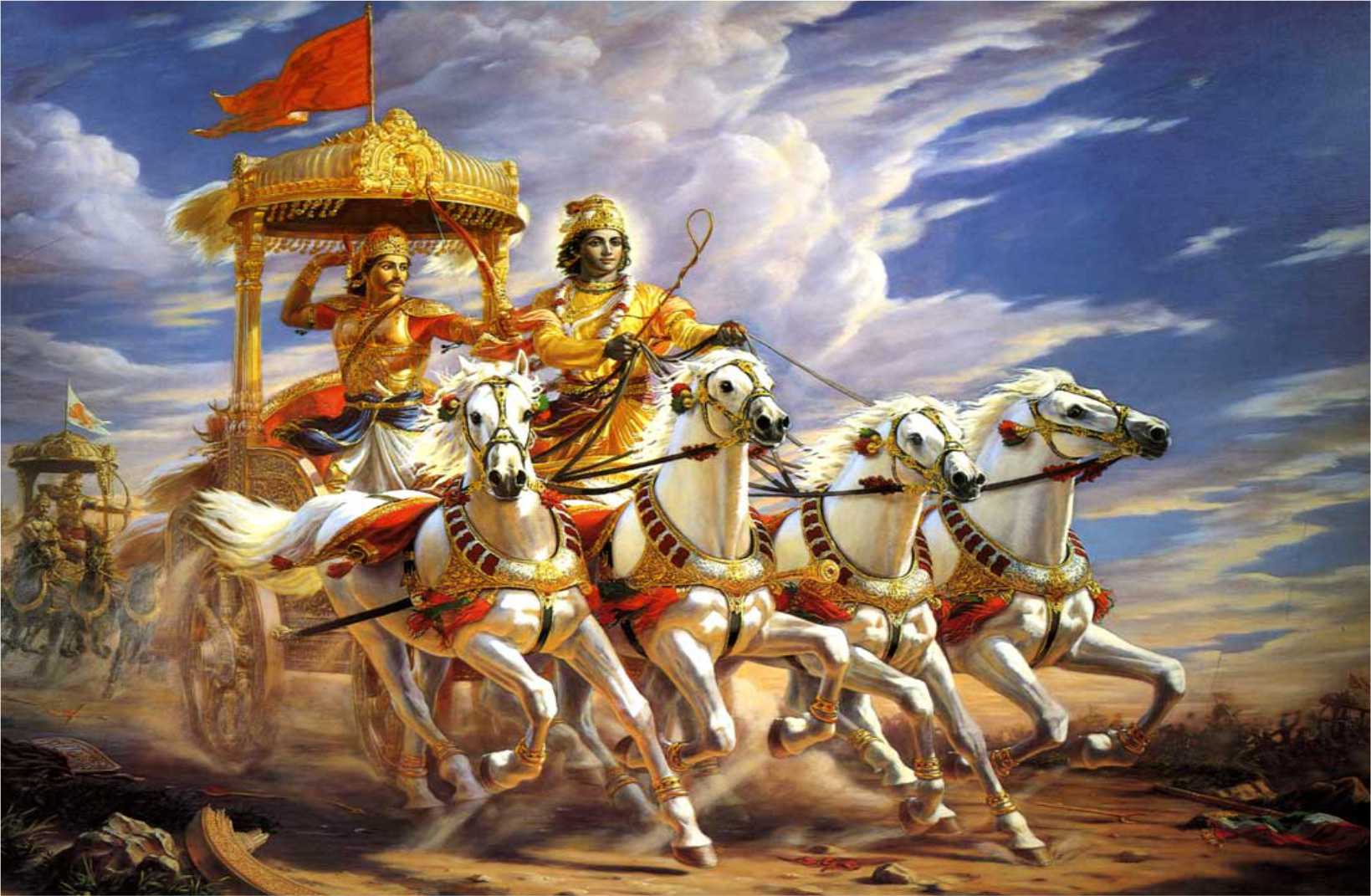 |
|---|
“What is here, is found elsewhere. What is not here, is nowhere else.”
That’s a bold claim, isn’t it? The sort that makes you feel that the speaker is conceited to say the least. But somewhere in the disbelief, it also gives you that hope of there existing an “answer to everything”. But surely, it can’t be. Things that are unbelievably good are rarely true. But an unbelievable quote is what the Mahabharata begins with, an unbelievably good story is what it is.
There are a lot of things to be learnt from the Mahabharata. I can’t possibly claim this post will contain them all. I’m not sure anyone can even try. What this article is - an account of things I learnt from some of the characters in the story. No, it is actually a subset of that. I won’t be able to give my vague ideas a voice, only those that have been consolidated. But enough of the disclaimers, let’s dive into it.
Bhishma
I’m beginning with the character I learnt from the most. Yup, weird I know - the titular characters are Yudhishtira and Duryodhana - they’re supposed to be the torchbearers. Well, Mahabharata is intriguing because it is extremely grey, and I found Bhishma to be the greyest of all (no hair jokes intended). He is undoubtably steadfast, strong-willed and full of gusto. On first look, one will most probably brand him as a “good” character - one who is conscientitous, morally correct and against evil. Yet, stripping away the reasons and the fluff, we can see Bhishma’s life for what it is - a set of ground-truths. He treated Amba poorly, sided with the Kauravas in the war, never stood against Dhitarashtra, and stood by and allowed Draupadi’s humiliation.
There is no virtue is being steadfast if it only fulfils a personal obligation.
Being rigid and steadfast have their place, but one should always be ready to change. To introspect. To evolve. Being stuck with your values is easy. It is always easy to follow rules. Breaking traditions and structures, on the other hand, is always difficult. This is not to say that values are worthless, but one should always think about whom these values benefit.
Karna
What an interesting character! Karna’s story is incredibly sad - a story of a life ruined because of misguided devotion. Karna was persistently sad throughout his life - initially because of the humiliation he faced publicly, and later on, his internal turmoil of supporting adharma. He knew what was happening wasn’t right, but like Bheeshma, he had to fulfil his personal obligations - he believed he owed his allegiance to Duryodhana.
Only accept favours from people who are worthy of gifting them.
Later, we even see Karna himself abusing Draupadi - partaking in Duryodhan’s adharma, blinded by misguided devotion.
Your soul takes on the color of your thoughts. Your thoughts are affected by your company.
The story of Karna teaches us the age-old wisdom of choosing your company wisely. Karna could never be happy because he was stuck with people he despised.
Dritrashtra
The hardest thing in life is letting go. If you can learn one thing in life, let it be this.
Dhritrashtra is, in my opinion, the most despicable, spineless character in the story. He never evolved from being power-hungry, Humans make mistakes all the time, but what makes one great is their ability to change. Dhritrashtra never did. He was too attached to his son, too weak to let go. The hardest part of being a parent is to let your children figure life out on their own, and Dhritrashtra wasn’t strong enough for it. He wasn’t strong enough to make decisions, to reprimand his son on misbehaving, to teach him the harsh truths of life. Weakness is always easy, and it always leads to pain. It was Dhritrashtra who had to face unbelievable anguish from the death of his 100 sons. It was him, in essence, who caused the Mahabharata.
Living in denial means you have to face the entire brunt of the consequences in one go. Taking responsibilility of your actions at every step breaks this heavy load into manageable chunks.
Yudhishtir
Yudhisdhtir is the most boring character at first glance. But peeling back the layers of the character can teach us some lessons. Yudhishtir was too rigid in his beliefs. Somewhat like Bhishma, he was only worried about his personal dharma. He couldn’t be direct and straight forward with people who were clearly in the wrong. He couldn’t decline the invitation to play dice, even when he knew it was clearly a setup. He was the most reluctant on fighting a war with his uncle and his brothers. He teaches us the subtle difference between being nice and being good.
Being good means being harsh when the situation demands it.
So, that’s it for now! I may write more on the Mahabharata in the future, but these are some lessons that stayed with me from the little I know about the story. The Mahabharata is incredibly complex and layered, and if you haven’t seen/read anything about it, I suggest watching any of the two TV series on it, and then reading The Difficulty of Being Good by Gurcharan Das. Having said that, the most important lessons come from thinking stuff over yourself, so as long as you know the story, you have all the ingredients. :)
Follow me on twitter @jollyshashwat for more on life and tech.